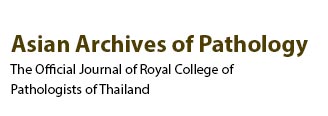[OA-34] The use of artificial intelligence in diagnosis of papillary thyroid carcinoma
Wuttichai Kimlap1, Nopporn Tipparawong1, Nichthida Tangnuntachai1, Somboon Keelawat1, Boonserm Kijsirikol2 and Pittipol Kantavat2
- Department of Pathology, Facolty of Medicine, Cholalongkorn University, Bangkok, Thailand
- Department of Computer Engineering, Facolty of Engineering, Cholalongkorn University, Bangkok, Thailand
Thyroid cancer is considered the most common endocrine malignancy, with papillary thyroid carcinoma (PTC) being the most predominant form, accounting for 85% of all diagnoses. Due to the diagnostic dilemma that can commonly occur in these neoplasms, artificial intelligence (AI) technology has been attempted to assist the diagnosis of these cancers. The aim of this study was to apply AI technology in diagnosis of PTC. The 1,027 and 1,054 images of benign thyroid tissue and PTC from 60 patients were used for training and validation by three convolutional neural network models, namely VGG16, VGG19 and ResNet50V2, each with added layers. The VGG19 model with added layers of avgpool2D gave the most reliable test values with an accuracy of 0.9763, false-positive of 2.6667 and false-negative rate of 7.1667. The sensitivity and specificity were 0.9659 and 0.9870, respectively. In conclusion, AI technology coold provide a high accuracy in diagnosing PTC and has the potential to become a new diagnostic modality of this cancer.
Keywords: artificial intelligence; medical diagnosis; papillary thyroid carcinoma


